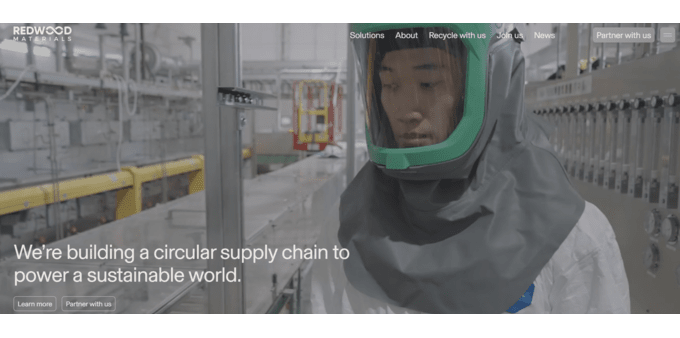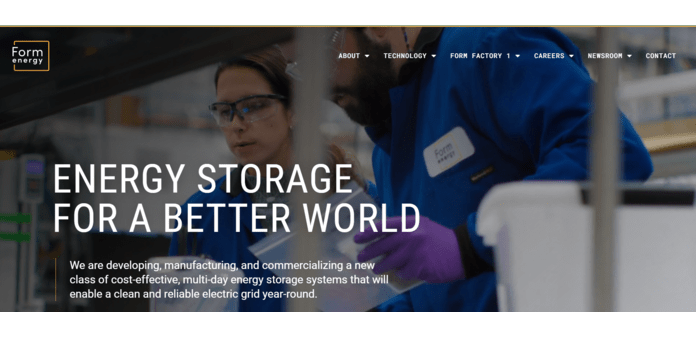This blog post explores the top 10 climate technology companies leading innovations in combating climate change. It covers various sectors, including renewable energy storage, plant-based foods, carbon capture, and sustainable construction materials. Each company is highlighted for its unique contribution to climate solutions and sustainable technologies. The post emphasizes the importance of ongoing innovation and investment in these areas, concluding with an optimistic outlook on these companies’ role in driving us towards a more sustainable and climate-resilient future.
Introduction
Climate technology, an essential tool in our fight against climate change, encompasses innovative solutions and strategies aimed at reducing carbon emissions and mitigating the effects of global warming. As the world grapples with the escalating climate crisis, these technologies enable a more sustainable and environmentally resilient future. This blog post will spotlight the top 10 climate tech companies leading the charge. Through their pioneering efforts and cutting-edge technologies, these trailblazers are transforming industries and reshaping our approach to environmental stewardship and sustainable living.
What is Climate Technology?
Climate technology encompasses innovative tools and strategies designed to address and mitigate climate change. This broad field includes technologies for reducing greenhouse gas emissions, enhancing energy efficiency, developing renewable energy sources, and capturing and storing carbon. The applications of climate technology are diverse, ranging from electric vehicles and battery storage to sustainable agriculture and smart grid solutions. Its role is pivotal in combating climate change challenges, offering pathways to lower carbon footprints, promoting sustainable development, and ensuring a more resilient future against climate risks.
Top 10 Climate Tech Companies
1Redwood Materials

Redwood Materials is a company focused on recycling and remanufacturing initiatives for end-of-life products, particularly those related to electric vehicles and consumer electronics. Their work centers around revitalizing product life cycles and creating a more sustainable and efficient approach to handling end-of-life items. By doing so, Redwood Materials aims to reduce the carbon footprint and promote circular economy principles, contributing significantly to manufacturing and waste management sustainability efforts.
2Impossible Foods

Impossible Foods is at the forefront of the plant-based meat industry, creating meat, dairy, and fish alternatives from plants. Founded in 2011, their mission is to counter the environmental impact of animal agriculture. They use scientific methods to replicate the taste and texture of meat, offering products like burgers, sausages, and ground meat. Their plant-based products aim to reduce the carbon footprint and resource usage compared to traditional meat, addressing climate change by promoting a more sustainable food system.
3Swell Energy

Swell Energy specializes in residential energy solutions, integrating solar energy and storage systems. Their home battery systems and solar panels create smart home energy systems that provide on-demand power generation and storage. Swell Energy’s innovative approach empowers homeowners to manage their energy usage efficiently, reduce dependence on the grid, and contribute to a sustainable energy future. The company’s business model also includes the development of virtual power plants, aggregating energy storage resources for more excellent grid stability and renewable integration.
4CellCube

CellCube specializes in vanadium redox flow battery technology. It provides large-scale energy storage solutions. Their systems are ideal for stabilizing renewable energy sources, offering long-duration storage capabilities essential for solar and wind integration. CellCube’s batteries are known for their scalability, safety, and environmental friendliness, making them suitable for utility, commercial, and industrial applications. With installations worldwide, they address the growing need for reliable and sustainable energy storage to support the global transition to renewable energy.
5CarbonCapture

CarbonCapture is pioneering direct air capture (DAC) technology to remove carbon dioxide from the atmosphere. Their work is vital in combating climate change, as it provides a solution for reducing atmospheric CO2 levels. CarbonCapture’s technology involves capturing and storing carbon underground or utilizing it in various industrial applications. Their efforts in developing scalable and efficient DAC systems are crucial for achieving global carbon reduction targets and mitigating the impacts of climate change.
6Climeworks

Climeworks leads the industry in large-scale carbon capture and storage. Their direct air capture technology extracts CO2 from the atmosphere, stores it underground, or uses it in commercial applications. Climeworks’ facility in Iceland, the largest of its kind, uses geothermal energy to power the DAC process, showcasing an innovative approach to carbon removal. Their technology is instrumental in reducing global carbon emissions, and their efforts contribute significantly to achieving net-zero emission goals.
7Form Energy

Form Energy is revolutionizing renewable energy storage by developing long-duration batteries, including a groundbreaking iron-air battery. These batteries can store energy for extended periods, addressing the intermittent nature of renewable sources like wind and solar. Form Energy’s technology enables a more reliable and consistent renewable energy supply, facilitating a smoother transition to a renewable-based grid. Their contributions are vital to overcoming one of the biggest challenges in renewable energy – storage.
8ChargerHelp!

ChargerHelp! addresses a critical need in the electric vehicle (EV) infrastructure – maintenance of EV charging stations. They recruit, train, and deploy technicians to repair and maintain EV charging stations, ensuring their reliability and functionality. As EV adoption grows, the demand for efficient charging infrastructure maintenance increases. ChargerHelp!’s services are vital for the smooth operation of EV networks, supporting the transition to electric transportation and reducing carbon emissions.
9CarbonCure

CarbonCure Technologies is transforming the construction industry with its innovative approach to eco-friendly cement production. Their technology injects captured CO2 into concrete during manufacturing, permanently sequesters the carbon, and enhances its strength. This process effectively turns concrete into a carbon sink, addressing the significant carbon footprint of cement production. CarbonCure’s solution is pivotal in reducing emissions in one of the most carbon-intensive industries, contributing to a more sustainable built environment.
10Northvolt

Northvolt is accelerating the green transition with its advanced lithium-ion battery production for electric vehicles (EVs). The company’s mission is to establish a supply of sustainable batteries in Europe, reducing reliance on fossil fuels. Their large-scale battery production facility in Sweden, powered by renewable energy, is a testament to their commitment to sustainability. Northvolt’s batteries are crucial for the electrification of transport, a key component in reducing greenhouse gas emissions and combating climate change.
Conclusion
The companies profiled in this blog post represent the forefront of climate technology, each contributing significantly to addressing global climate challenges. Their innovations span various solutions, from renewable energy storage and carbon capture to sustainable food production and electric vehicle infrastructure. The continued support and investment in these technologies are crucial for their evolution and widespread adoption. With a collective focus on sustainability and efficiency, these companies embody the potential for a more sustainable and climate-resilient future, leading the way to a greener, cleaner world.